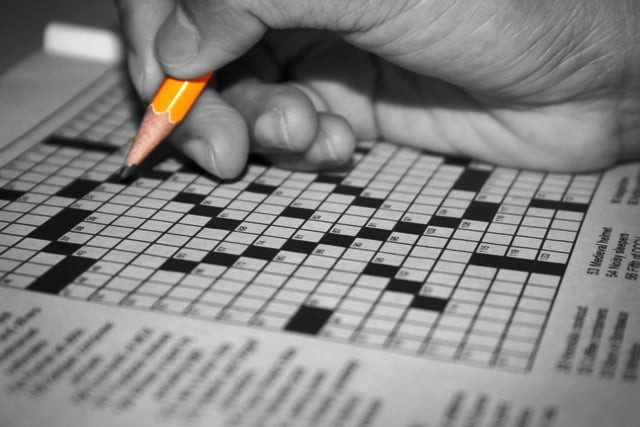Graduate Assessment Test (GAT), which is also sometimes known as the local Graduate Record Examination (GRE), is a prerequisite test taken in order to get admission into any M Phil in almost all Pakistani universities. Moreover, it is required for the Higher Education Commission (HEC) scholarships.
Naturally, students in the last semester/year of their graduation get worried about their GAT exams, as their future is dependent on how well they do in these papers.
So what is the GAT really?
As obvious by its name, it is a test which is designed to assess the skills and abilities gained in the 16 years of education. Hence there are no quick fixes. However, do not get depressed; continue reading to know what you can do to make this test less dreadful for yourself.
Get familiarised with the test pattern
There are a 100 multiple choice questions and a total of 120 minutes. Each question carries one mark and there is no negative marking. Furthermore, there are 40 question in the English section, 30 in the analytical and 30 in the mathematics section. This is for biological sciences. For other subjects, there might be a slight variation. For complete details, visit the National Testing Service (NTS) website.
The English section usually comprises antonyms, synonyms, fill-in-the-blanks and reading comprehension questions. In mathematics, which is essentially high school level, the questions consist of basic geometry, sets, basic arithmetic and basic algebra. The analytical section mainly consists of logical puzzles and a few logical reasoning questions.
Preparation for the mathematics section
Increase your mathematics skills by studying elementary maths for a month or two. Try to learn algebraic and geometric equations and formulae. Practice your skills each day with sample questions. You can find the latest GAT format in the official NTS book. The questions there are not an exact match but at least you will get an idea of what type of questions to expect.
The analytical section
You can improve your analytical ability by practicing sample questions again. For the logical puzzles, my favourite book is the GRE Big Book which has plenty of questions to last a life time. You can try to solve puzzles like Sudoku or code breaker which help increase your analytical ability.
The English section
For English there is no quick fix. Forget memorising the word lists for vocabulary. They will do no good and instead will burden you psychologically. Try a few novels, preferably by British authors. Also try to read columns and op-ed pages of English dailies. Puzzles like anagrams and crosswords help you increase your vocabulary. Try to solve at least one puzzle a day.
Time management
The main thing in these types of tests is time management. You may know answers to all of the questions but mismanagement of time can result in an incomplete paper and thus a loss of marks. Practise solving 100 questions in the same ratio as in the real test, within 120 minutes. This way you can find your rhythm and can simulate real test conditions. Within a week of solving these “home tests”, you will feel confident enough and will be able to manage 120 minutes in the best way on the actual test day.
Resource books
People often ask me what book one should follow to get a higher score. I usually suggest books like GRE Big Book, Barron’s (older editions), ARCO and the official NTS book. However, please keep in mind that these books are no substitute for hard work and dedication. One can only use these books as a tool rather than entirely relying on them. As GAT has no fixed syllabus, in the end a book only serves as much as a template for the real test.
Exam day tips
Try to sleep early before the test day. Reach the test centre well in advance and locate your seat. Try to relax. Do not read anything on the test day. The GAT has no syllabus so you do not have to complete that sample test from last night.
During the test
You may try your own methods of solving the test. However, my method for solving was this: Start with the math section and solve all those questions that are straight forward and can be done less than 45 seconds. This should take you about 20 odd minutes. The rest I leave until later. Move on to the English section and try to solve the easy questions first; these are solid marks that you are sure to get. Leave the reading comprehension questions for now as they are very time consuming.
With 30 minutes on this section, finally move on to the analytical section. The trick here is to understand the problem and if possible, draw a table or diagram. Read each question carefully. Try the process of elimination on each option. At the end there is only one option and that must be the correct one. Do not try to spend too much time on a particular question. This section will or should take you a maximum of 50 minutes, given that there are 30 questions.
Go back to the math section and try the remaining questions there. Sometimes you are sure about a question that you will never be able to solve. So make an educated guess. After that, don’t dilly-dally, move on to English and try the same there. At the end you will be left with 10 to 15 minutes. Try to solve the remaining analytical questions. In the last two to three minutes, make guesses about all the questions that you left. Double check your answer sheet to make sure that no question is left unmarked – since there is no negative marking you might as well go with luck.
These are few tips or suggestions which worked for me. These may not work for everybody, but definitely led me to success. Different people have different ways of thinking and working, so try your own way if you feel it fits you better. Anything is better than going through a nervous breakdown while memorising a 1,000 words from a dictionary!
I wish you all the best of luck for your test and hope that it will work out splendidly!
A short guide to help you with the NTS-GAT exam for Pakistani universities
Remember, anything is better than a nervous breakdown! With these tips, you can successfully ace your GAT test!



COMMENTS (9)
Comments are moderated and generally will be posted if they are on-topic and not abusive.
For more information, please see our Comments FAQ